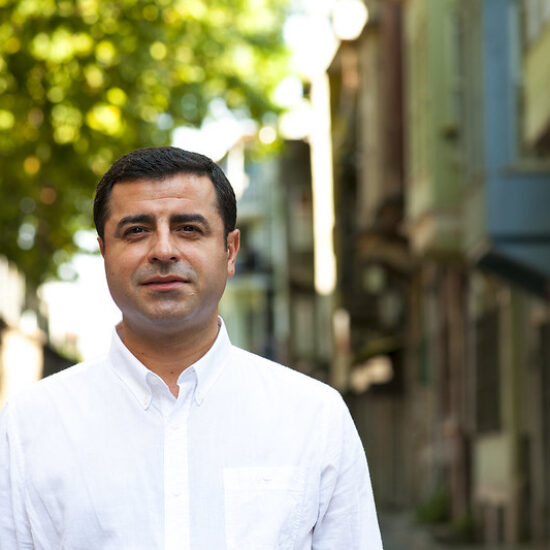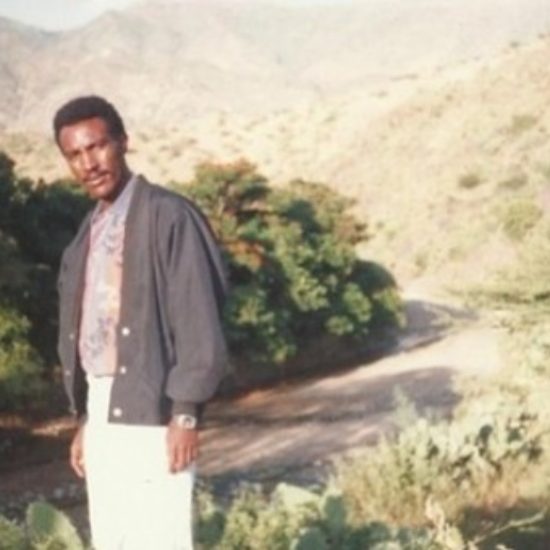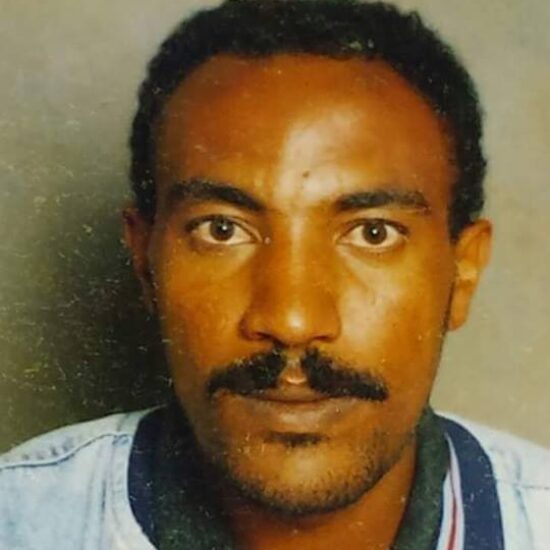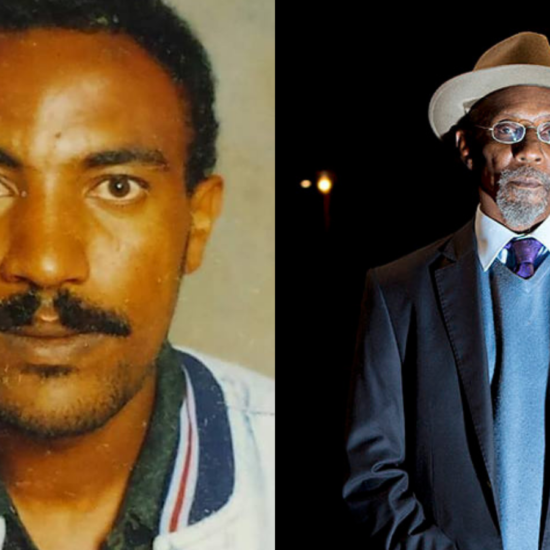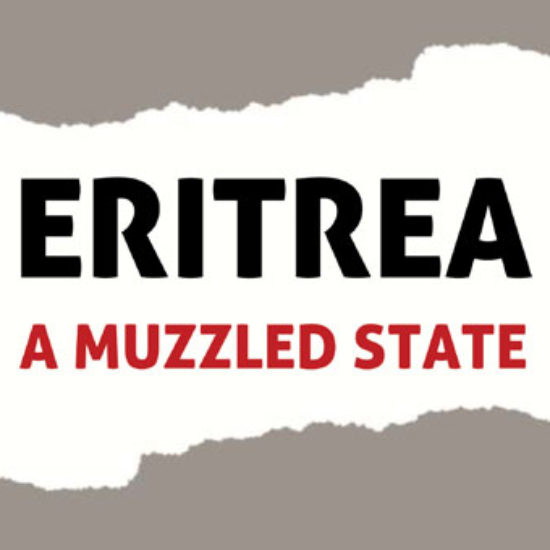
Poet, critic, and editor-in-chief of the leading newspaper Zemen, Amanuel Asrat is credited for the Eritrean poetry resurgence of the early 2000s. Along with two friends, he also created a literary club called ቍርሲ ቀዳም ኣብ ጠዓሞት (Saturday’s Supper).
In 2001, the Eritrean government began a campaign to silence its critics, arresting opposition politicians, students, and many journalists. As part of this crackdown, Amanuel was arrested at his home on 23 September 2001, alongside the editors of all privately-owned newspapers. He has not been heard from since.
It is believed that Asrat continues to be detained incommunicado without charge or trial and is one of the few surviving journalists arrested during the media crackdown.
In October 2020, Amanuel Asrat was awarded the PEN Pinter Prize for a Writer of Courage.
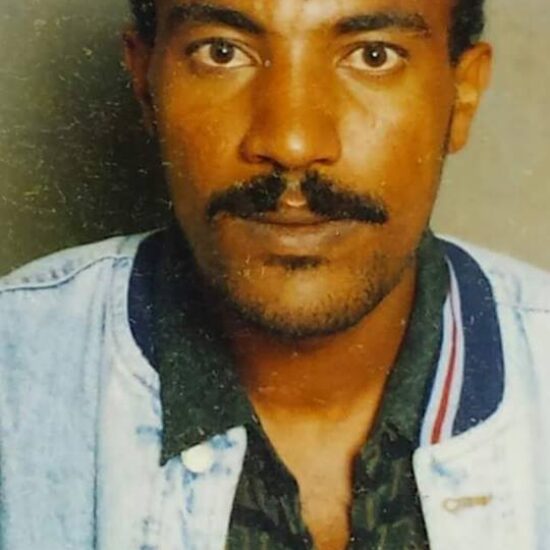
The ugliness of the thing of war
When its spring comes
When its ravaging echoes knock at your door
It is then that the scourge of war brews doom
Background
Award-winning Eritrean poet, songwriter, critic and editor-in-chief of the leading newspaper ዘመን (Zemen, The Times) Amanuel Asrat was arrested at his home on the morning of 23 September 2001 amid a crackdown on state and private media. It is believed that he continues to be held without charge or trial.
Asrat is credited for the Eritrean poetry resurgence of the early 2000s. Along with two friends, he created a literary club called ቍርሲ ቀዳም ኣብ ጠዓሞት (Saturday’s Supper) in 2001. This club set a precedent for the emergence of similar literary clubs in all major Eritrean towns.
His newspaper, Zemen, became the leading literary newspaper in the country, run by a circle of critics who helped shape the cultural landscape. Asrat himself was one of the most popular art critics of his time.
Asrat is also a well-known poet and songwriter. His writings dealt with subjects ranging from the daily life of the underprivileged, to war and peace. His work provided a negative insight towards conflict, an uncommon approach among popular Eritrean wartime poetry.
His award-winning poem ኣበሳ ኲናት (The Scourge of War)* alluded to the then ongoing border dispute with neighbouring Ethiopia, describing the blood shed by two brothers. In the summer of 1999, the poem was awarded a prize by the National Holidays Coordinating Committee, run by the People’s Front for Democracy and Justice. The prize is regarded as one of the most prestigious in Eritrea in terms of literary and artistic awards. The committee outlined the uniqueness of Asrat’s poem for standing against war.
‘ኣበሳ ኲናት (The Scourge of War)’
Where two brothers pass each other
Where two brothers meet each other
Where two brothers conjoin
In the piazza of life and death
In the gulf of calamity and cultivation
In the valley of fear and peace
Something resounded.
The ugliness of the thing of war
When its spring comes
When its ravaging echoes knock at your door
It is then that the scourge of war brews doom
But…
You serve it willy-nilly
Unwillingly you keep it company
Still, for it to mute how hard you pray!
Extract from the full poem, translated by Tedros Abraham
The situation of Asrat and his fellow writers remains unclear. It is unknown whether charges have been brought against them or if they have ever been brought to trial. They are believed to have been subjected to torture and other ill-treatment, including lack of access to medical care, with many of them dying in custody. Asrat is believed to be one of the few imprisoned journalists surviving since the media crackdown in 2001.
